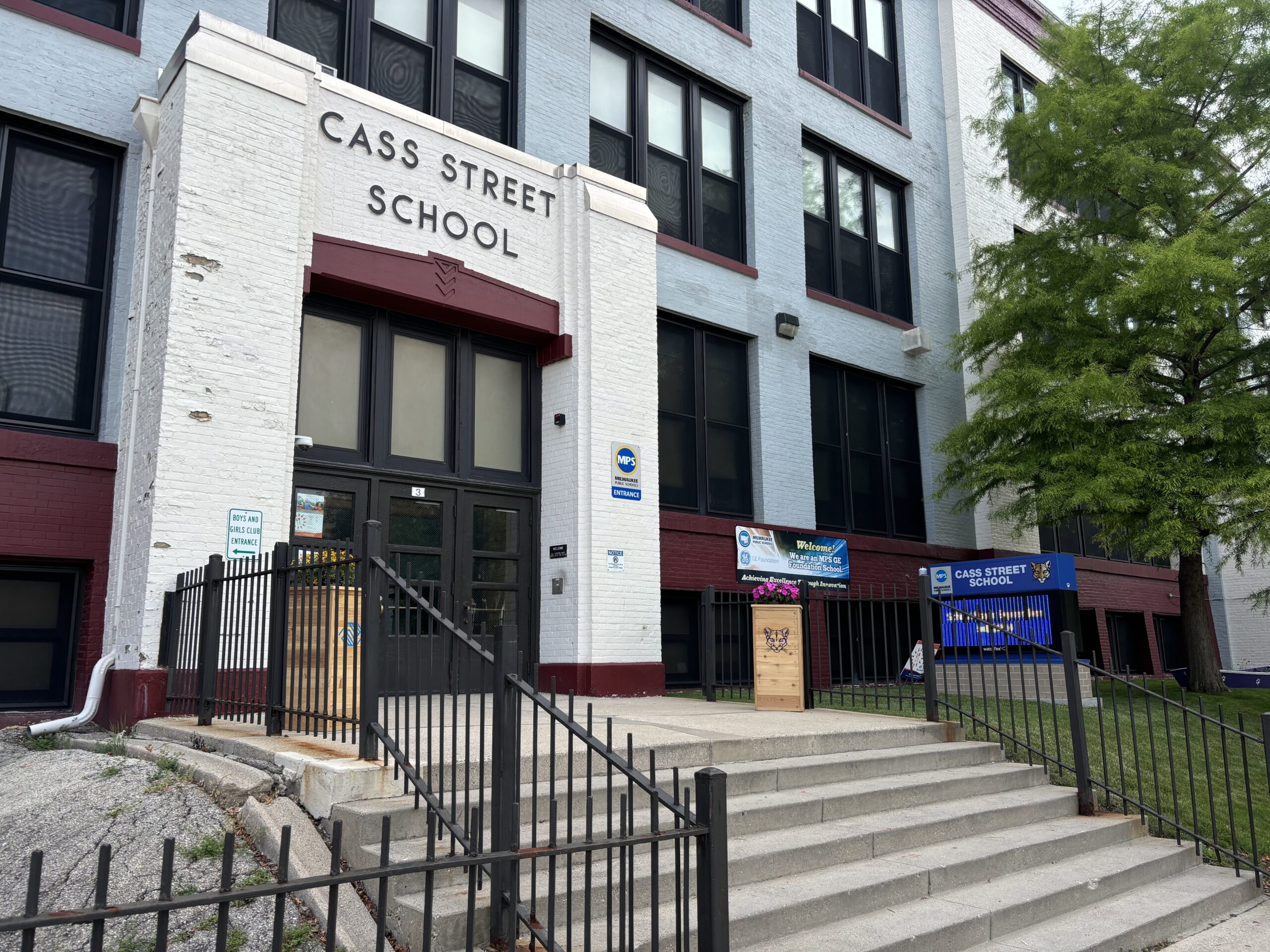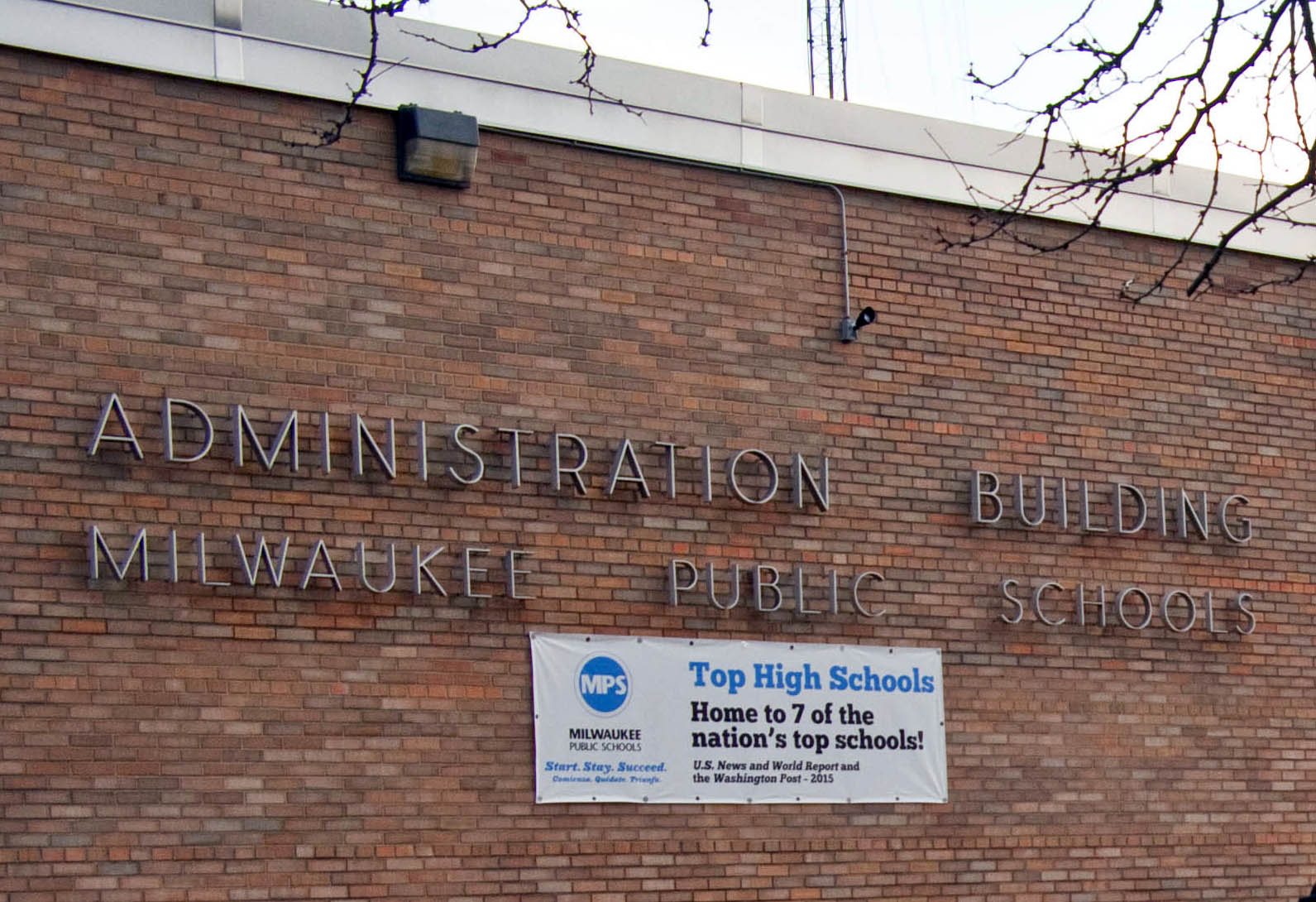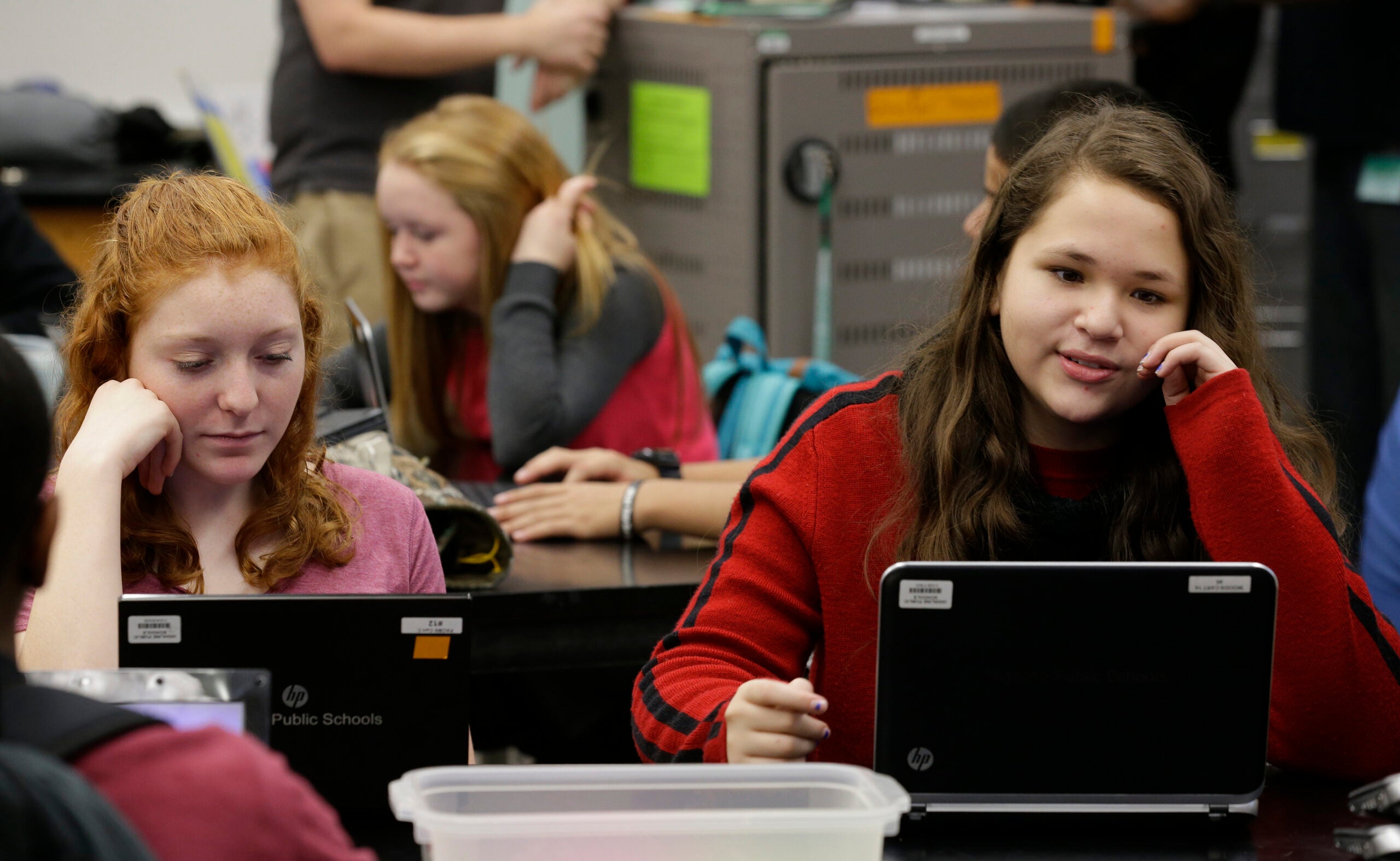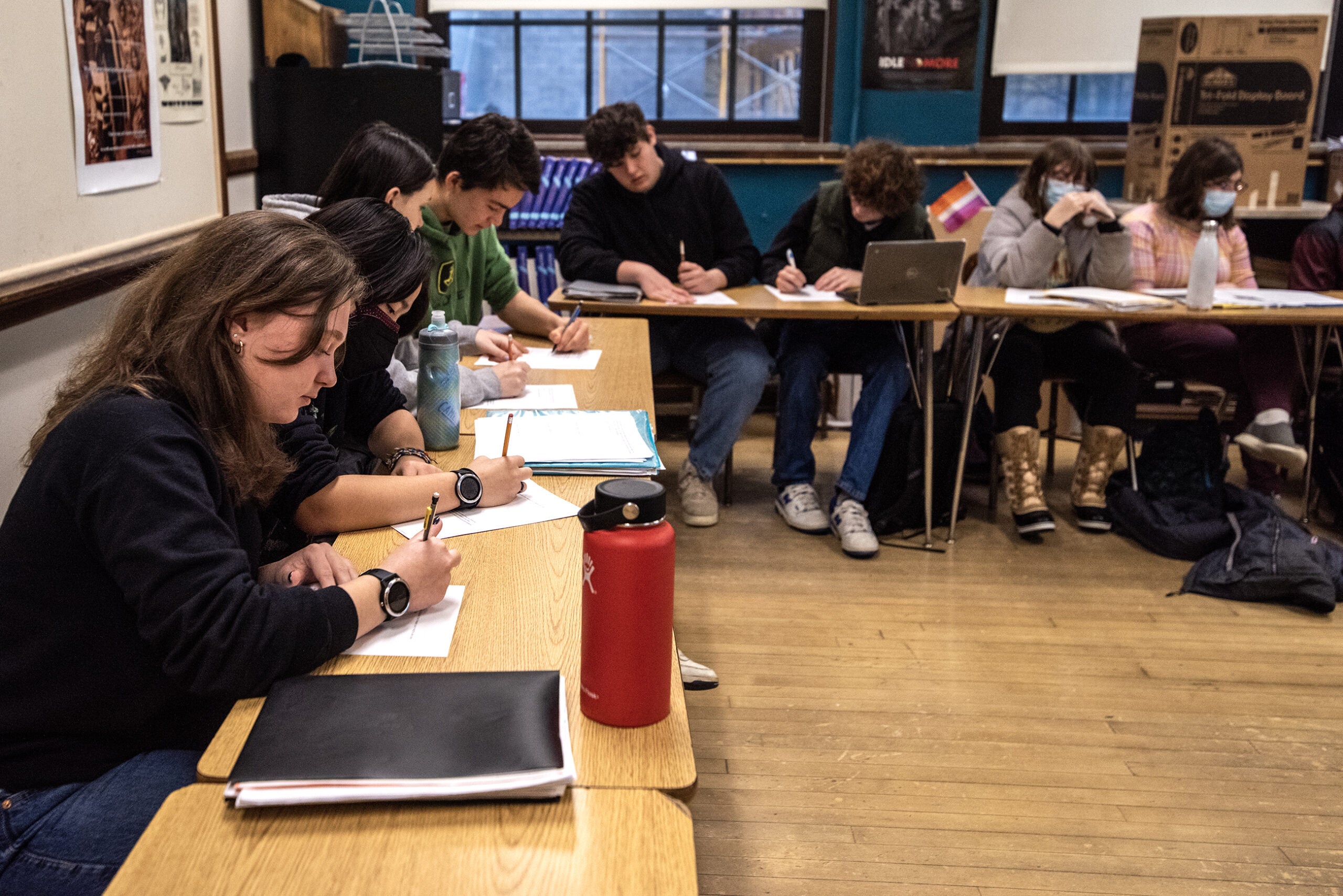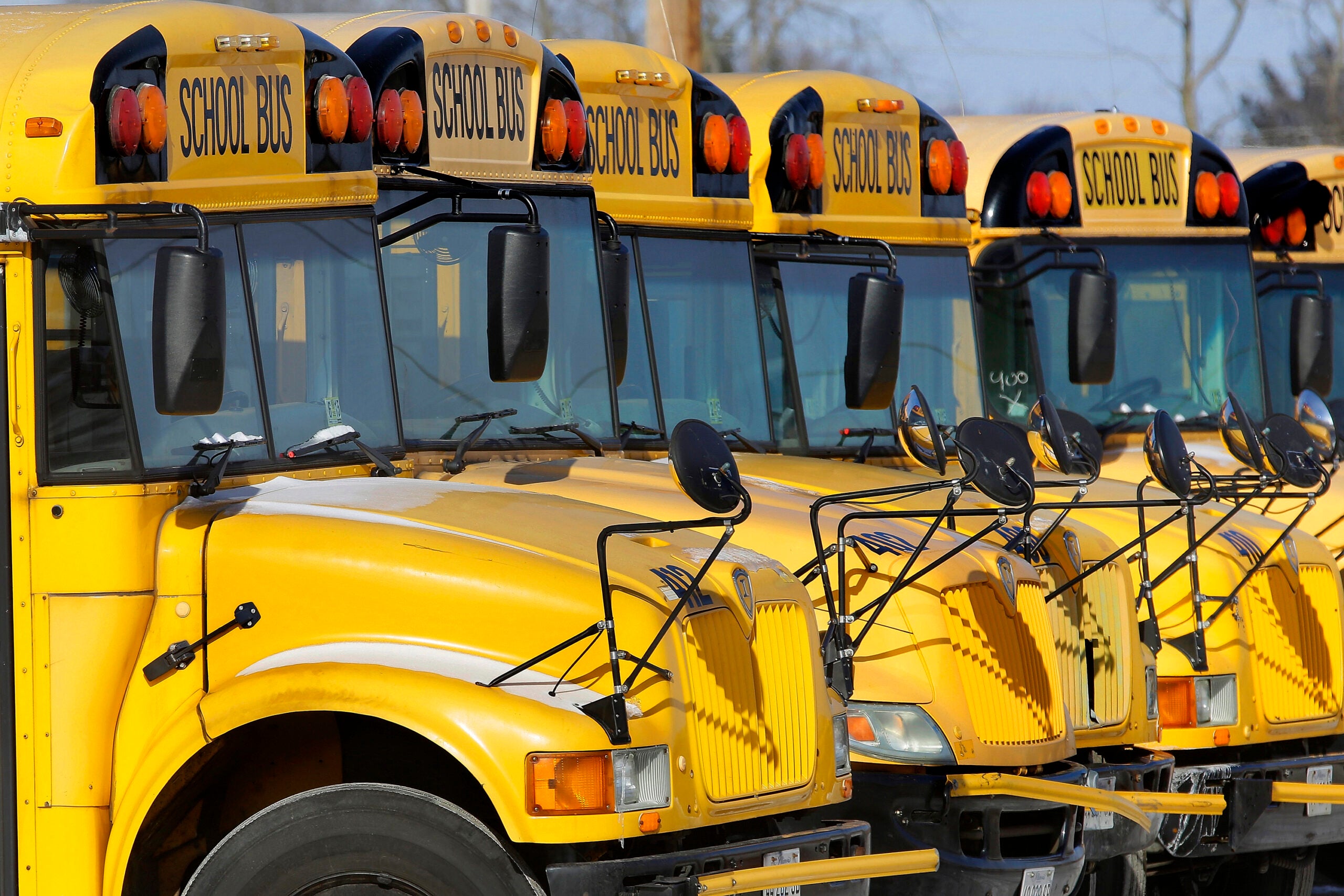Students are protesting a ticketing policy that requires families to use a digital app to pay for school events in the Racine Unified School District.
The website and mobile app Ticket Spicket is used to buy tickets to school events including games, concerts and dances.
Some students, families and community members take issue with the new system, saying the inability to pay with cash creates a culture of inequity because some families may not have easy access to the app or digital payments and because the service is only available in English.
Stay informed on the latest news
Sign up for WPR’s email newsletter.
They want the district to add a readily available on-site cash option for all school events. Students said they have met with their athletic director, principal and district leadership and their request has been turned down.
Outside a high school basketball game last week, members of the community organization Youth Empowered in the Struggle collected signatures in support of creating an easily accessible cash option. Adiana Orta, a junior at William Horlick High School, handed out flyers.
“It’s discriminatory. It’s almost kind of a racist policy and I don’t think that’s OK,” Orta said.
The district made the move away from cash in 2022 for efficiency, safety and planning purposes, according to Stacy Tapp, a spokesperson for the district.
“To be able to know who’s coming to the game in advance, how many people are coming so that we can staff it appropriately, and having some of those proactive safety measures in place is extremely, extremely important to us,” Tapp said.
Some students find the new system inaccessible
Students, families, community members and some district employees argue the app disenfranchises low-income people and non-native English speakers.
Ticket Spicket accepts debit and credit cards and other mobile payment options. Advocates for a cash option in addition to the app said it cannot be assumed every student or family has a debit or credit card.
About 5.9 million households in the U.S. don’t have a bank account, according to a 2021 survey by the Federal Deposit Insurance Corp. That’s about 4.5 percent of all U.S. households.
Silvia Miaranda, a sophomore at Horlick, wanted to go to homecoming in October and she nearly missed the opportunity because she only had cash.
“It was stressful. I had to hurry up and try to find a bank that was open. But I’m at school and my mom only has cash,” Miaranda said.
According to district data, approximately 60 percent of the district’s students are economically disadvantaged and 1,894 students are English language learners.
Ticket Spicket is only available in English. Students said this creates exclusivity around school events which are meant to include everyone.
Lilli Beth Rodriguez is a sophomore at Horlick. She said her parents struggle to understand English so when they want to come to her sporting games or choir performances, she must step in and help.
“(It) creates a barrier because I’m constantly having to translate, and it’s fine, but it’s a constant battle,” Rodriguez said.
Tapp said the district is talking with Ticket Spicket to discuss adding a translation tool to the app.
Coach notices lower attendance
Tapp said there has been an increase in event attendance since implementing the new system. But that’s not what parents and coaches see.
Sherrie Lawson is the women’s basketball coach at Horlick. She said she is used to packed stands. But when her team played Park High School recently, she said it was almost empty.
“It’s caused us to lose support for the team (and) for the school. It brings the morale down,” Lawson said.
Tapp said forcing students to buy tickets ahead of time requires them to be intentional about why they are coming to an event and prevents students from showing up for the sake of misbehaving.
Parent and district employee Jessica Malacara said her parents used to come watch their grandchildren in most games and performances. But now, they are less likely to come because they are intimated by the technology.
“They are very cautious because they don’t want to come to an event and then be told, ‘Sorry. You don’t have a ticket through Ticket Spicket, you can’t come in,’” Malacara said.
District promises not to turn students away
The district has come up with some workarounds, but supporters of a cash option say it’s not enough.
Tapp said they will not turn people away. Students can speak with the activities director at their respective high schools if they have outstanding circumstances that prevent them from accessing the app or a digital payment method.
Rodriguez said this option is not well known and inconvenient.
“Students shouldn’t have to go out of their way to tell their status or their family situations in order to be able to pay in cash. If they are making expectations already, it should be public,” Rodriguez said.
Alternatively, season passes are also available for purchase using cash. Students said this isn’t practical since some students only want to go to one or two games.
Tapp said the district wants to hear feedback from students, but they don’t plan on changing their policy.
Miaranda said her peers will continue to advocate for readily available cash options at all high school events throughout the district.
“We won’t stop fighting until we get a yes,” she said.
Wisconsin Public Radio, © Copyright 2025, Board of Regents of the University of Wisconsin System and Wisconsin Educational Communications Board.



